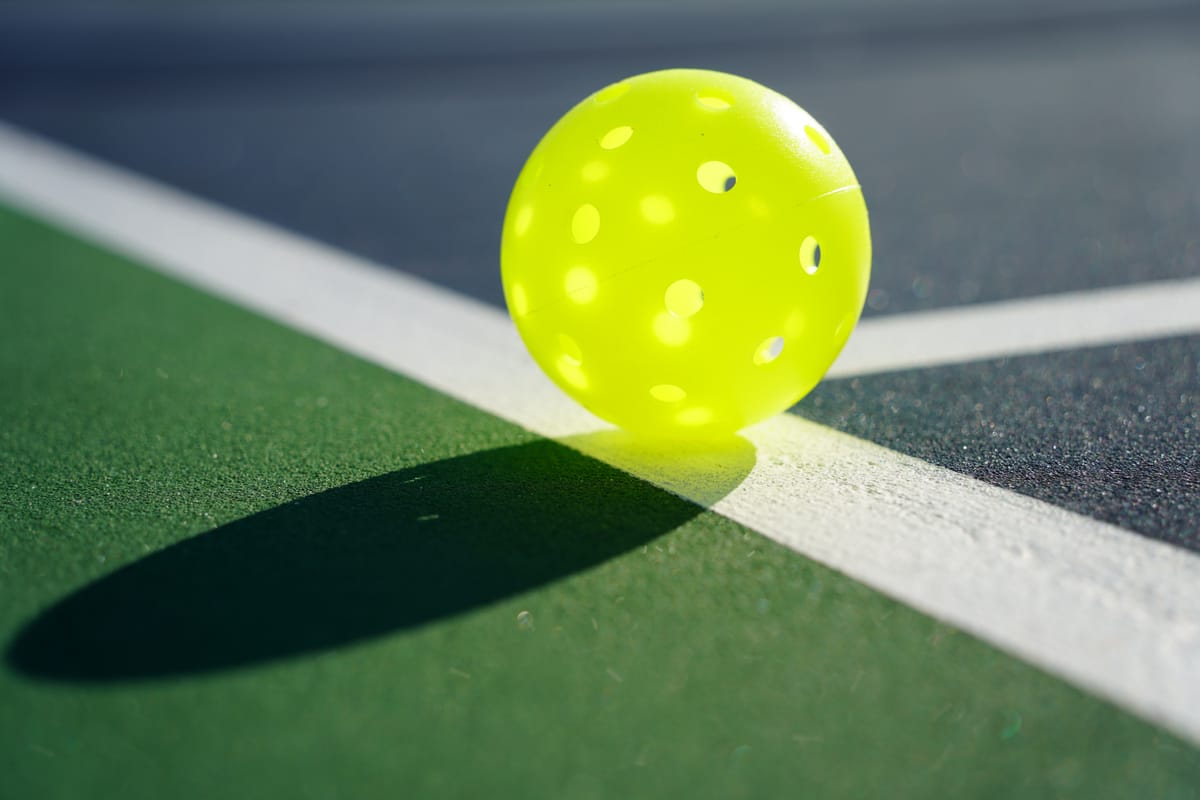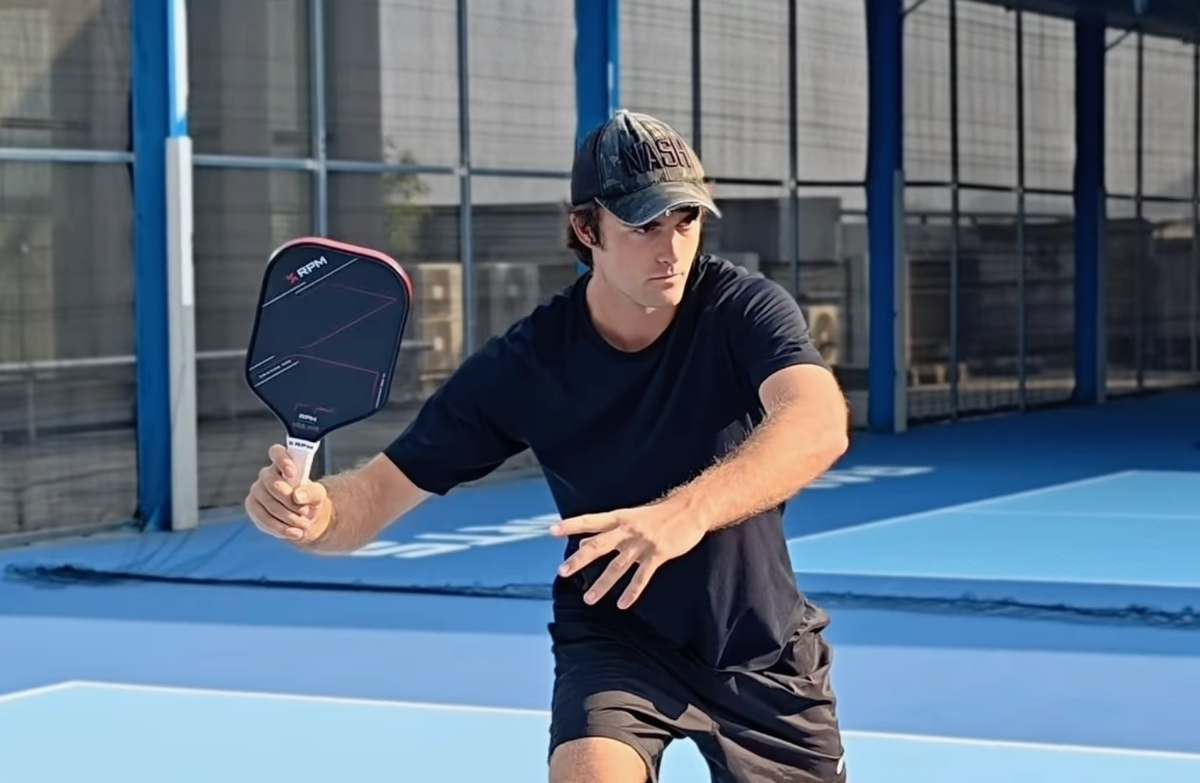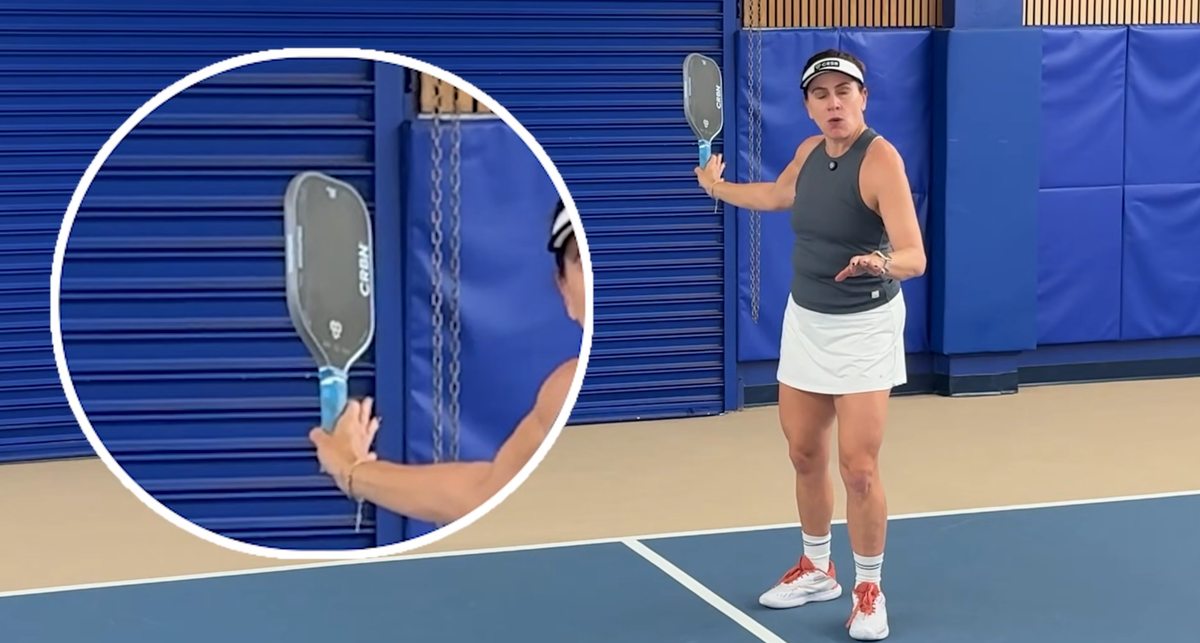
Even when you do everything right, injuries can still happen. Some days it feels like a full-time job managing our creaky, achy bodies. Backs, hips, knees, and shoulders seem to be the common trouble spots for pickleball players. Anti-inflammatories, braces, and physical therapy can help us cope but sometimes our joints just wear down after all the hard miles we’ve put on them. Every pickleball addict’s nightmare is being stuck at home after an injury or surgery, itching to get back in the game. (And every pickleball spouse’s nightmare is that muttering, grumpy so-and-so on their couch…)
Importance of not rushing back
If you love sports, you will probably be back playing before you’re 100%. Don’t rush it. Listen to your body (and your doctor) if you want to avoid setbacks. The good news is that there are ways to ease back into the game and compensate for your current lack of mobility. These tips also apply if you are permanently limited by your footspeed as you get older.
For example, it’s essential to get from the service line to the kitchen line ASAP, especially after a service return. This can be challenging if your body can no longer get out of first gear or if you are dragging a bum foot, knee, or hip along with you. So, what do you do?
Strategic Movement
For the service return, hit the ball on a high arc and deep cross court. By lofting instead of driving the ball, you give yourself more time to get to the kitchen. By returning cross court, your partner can now protect you by covering the middle as you transition forward. Try it! And enjoy your leisurely stroll to the kitchen.
Third Shots & Opting for Low Drop Shots
Another technique is to move up to the ball and short-hop it with your service return or ground stroke. This allows you to move forward at contact, reducing the distance to the kitchen for your next shot. Less steps take less time.
The same thing applies to third shots. If you can’t move quickly, avoid driving the ball from deep in the court which leaves you stuck at the back line when your opponent volleys back deep to you. Instead, plan on 2-3 low drop shots, working your way forward until you reach the kitchen line. Once there, your lack of mobility doesn’t matter as much, and you can rely on your usual, magnificent net game!
What makes pickleball so fun and interesting is the many tactics that can accomplish the same mission. Whether you are temporarily or permanently limited by your movement, there are strategies that enable you to play smart and effectively. You can still find ways to enjoy the game, which brings us to my last piece of advice:
Play for fun all the time — but especially when injured or rehabilitating.
Consider playing below your normal level. Many of those players will be thrilled to play with you and you will have less stress and more fun as you play your way back into shape. Rediscover the joy of playing without having to grind hard and push your limits on every point. Learn to let the tough ball go and practice saying, “Nice shot!”. Take it easy and look forward to the day when you can play your best again. Soon you’ll be the one hearing “nice shot” from your friends.
Pickleball: Part of a Balanced Diet
One of the reasons we need to know how to cope with limitations is that we can become truly addicted to this game. Some evenings my wife will watch me hobble around the house after a full day of playing and coaching, shake her head, give me “the look”, and ask, “You’re playing tomorrow, right?” Of course, the answer is almost always “Yes”. Once I stretch and get moving the next day, pop an ibuprofen or two and see my friends, I’m ready to go. But I have come to realize that this behavior isn’t sustainable or healthy.
As much as I hate to make concessions to age, my body needs more recovery time these days. So does my mind. I don’t want to rain on your Pickleball Parade but there’s more to life than swatting a plastic ball around (Horrified gasp from the crowd!) As a former massage therapist, I recall seeing many clients who suffered from repetitive stress syndrome, whether it was sitting behind a desk for 50 hours a week, driving a truck, or playing a demanding sport.
It’s never fun to turn down requests to play, but we all need to recharge physically and mentally. By all means, keep moving and interacting, but mix it up a bit. Make time for resistance training, stretching, and light cardio so that you stay strong and balanced. Read a good book, travel without your paddle, and recharge your battery by pursuing those things that used to fill your days before pickleball pushed them aside.
As we age, we’re supposed to get older AND wiser. Know when to say “No”. Give yourself a break and feel revitalized the next time you join your friends on the court.
Anuncie Aqui / Advertise Here
Sua marca para o mundo Pickleball! / Your brand for the Pickleball world!

 English
English  Spanish
Spanish  Portuguese
Portuguese  German
German  Italian
Italian  Japanese
Japanese  French
French  Polish
Polish  Russian
Russian  Netherlands
Netherlands  Hungarian
Hungarian  Turkish
Turkish  Videos
Videos  Pickleball Portal
Pickleball Portal







 English (US) ·
English (US) ·  Portuguese (BR) ·
Portuguese (BR) ·